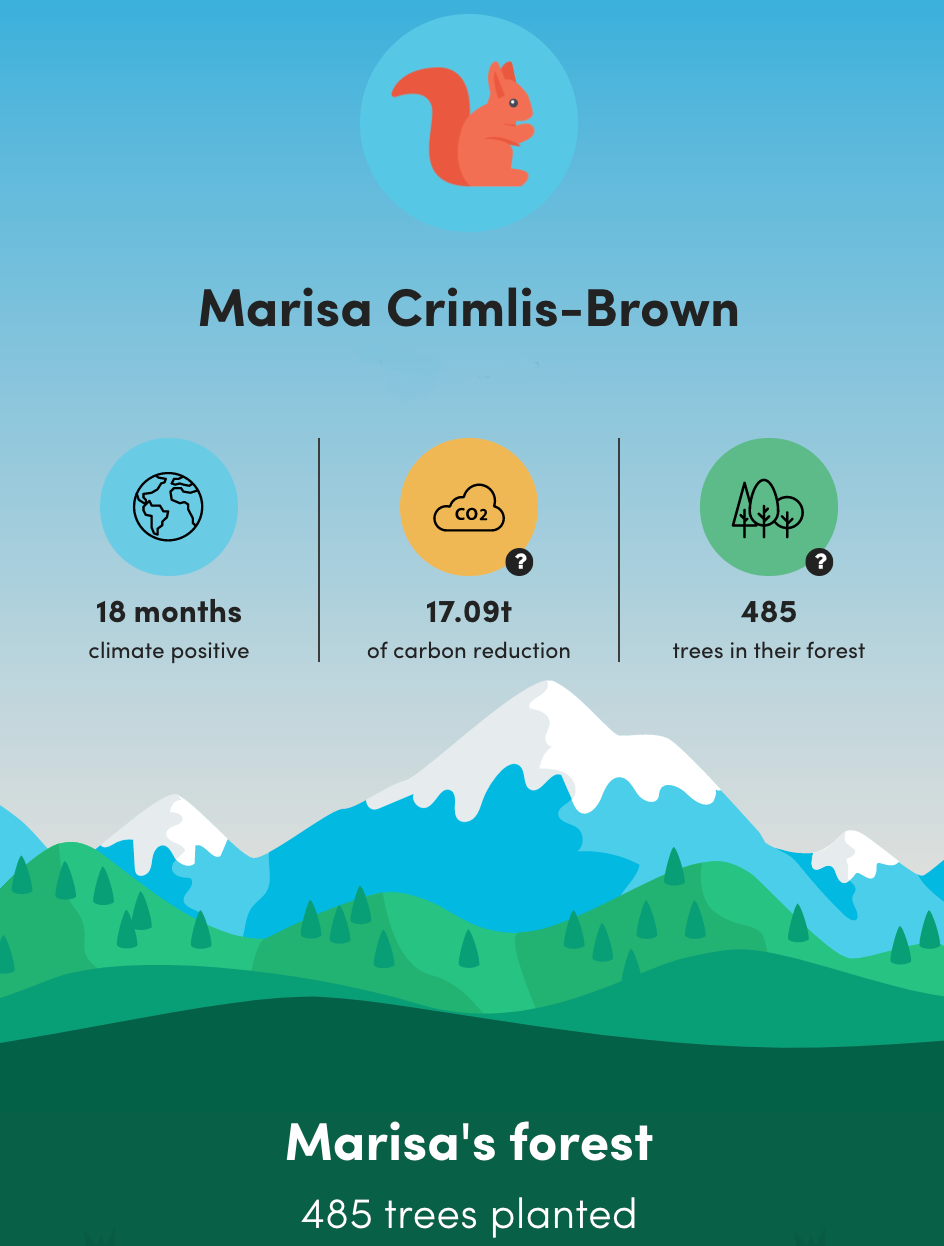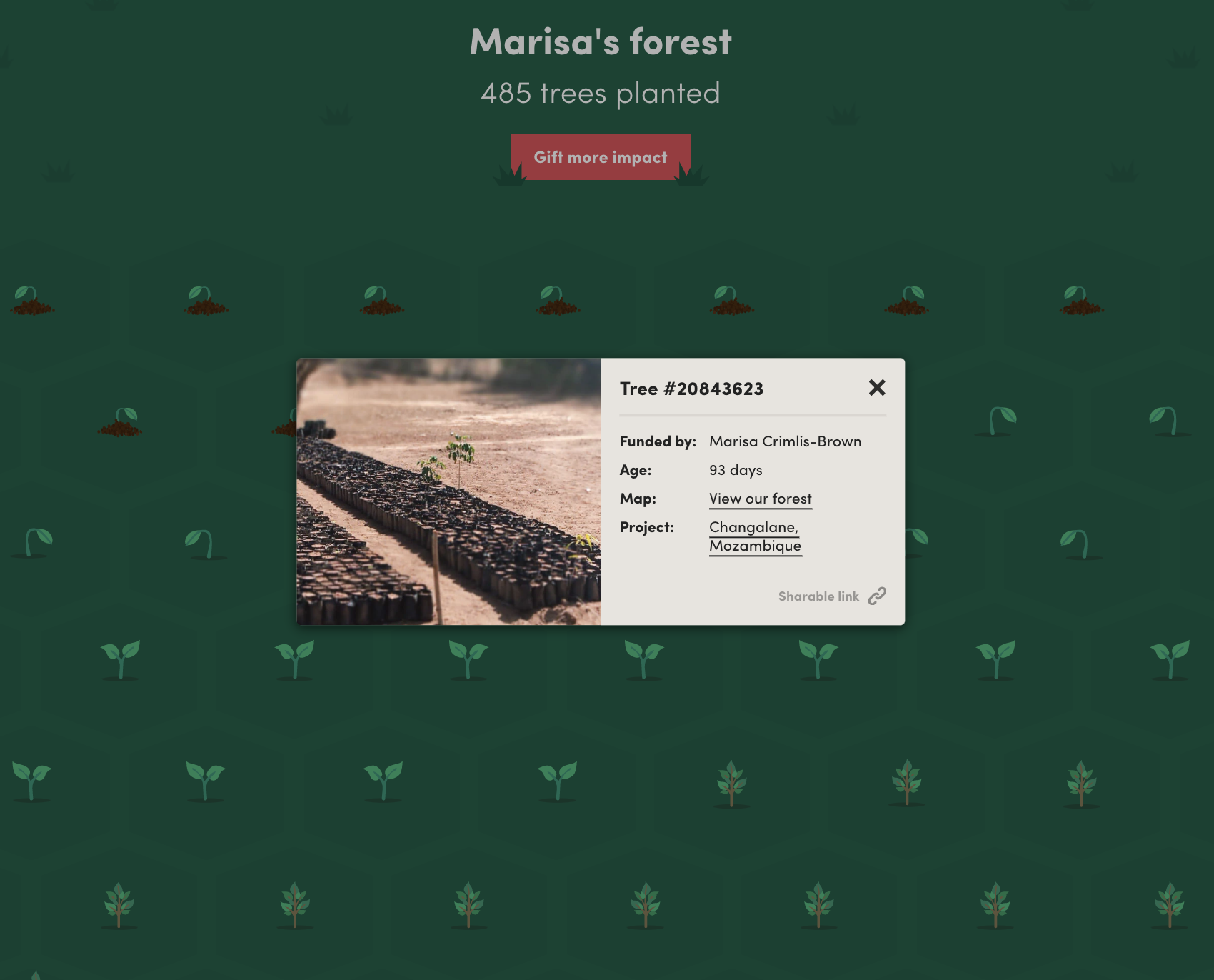Sustainable marketing campaigns to spark inspiration
What is sustainable marketing and how do you do it? These examples of sustainable marketing will give you eco-conscious inspiration and drive revenue to your business.
Clever marketing ideas for the eco-conscious businesses
With high hopes for global climate conferences and high stakes for the climate at large, it's evident a shift in prioritising sustainability and environmentally friendly practices is necessary.
We’ve also seen a shift in consumption. Shoppers are savvier and more discerning about how they spend their money and what businesses they support.
Whether it’s using your waste wisely, reframing customer thinking, reconsidering packaging, small ideas can lead to big results.
If your company is already making sustainable changes for good, here are some brilliant sustainable marketing ideas from businesses in food, fintech, automotive and more to help you do it even more effectively.
1. Reduce your carbon footprint through gamification
Let’s start with a bank. The Do Card (Do Black) from fintech company, Doconomy, is the first credit card with a carbon limit. How novel! Think of your smartphone, smartwatch, and countless apps tracking your water consumption, steps, etc.
This is the first card to monitor your carbon limit.
The card app tracks spending and gauges your carbon footprint when purchasing.
When the user over spends on their carbon footprint (rather than a financial overspend) the card denies their purchase.
A great way to keep people accountable, and it is being picked up globally.
Ecologi is another great example, all around gamifying for good. You can use their carbon offsetting for personal use, or for your business.
A personal favourite of mine, my Ecologi subscription allows me to plant trees monthly and support worthy causes all over the globe. Every month I’m greeted with a ‘new climate positive month’ and a round up of all the good I’ve helped them do.
Additionally, the game board is fun and my ‘forest’ is full of everything from buds, to saplings to thriving trees. Like my Tamagotchi in the 90s, it’s very satisfying to watch the forest grow and see a difference (ok, my forest is doing waaay better than my Tamagotchi ever did!).
We see the company also lives what they do, which is something customers buy into (more on this later). Ecologi also has a collective action tracker, demonstrating all the good that’s achieved by the community. They even suggest eco-friendly products and gift guides, so it’s all on-brand with what they believe in.
There’s accountability, the user can see their impact, and track exactly what tree they’ve helped to grow - as well as additional community projects that Ecologi supports.
2. Reduce (reuse and recycle) your waste
Take a look at this ingenious solution from a small brewery, SaltWater Brewery in Florida.
They saw the enduring problem of six-pack plastic waste injuring marine animals in the wild and sought to solve the dilemma. What made this innovation brilliant was they were able to make this change by using waste from their brewing process to create the biodegradable rings - a huge win/win.
This small solution from the brewery in 2016 has sparked major changes throughout the industry.
The Home That Runs on Dunkin' was a tiny home, powered by Dunkin’ Donuts’ used coffee grounds and listed on Airbnb in Massachusetts.
Though technically not an Airbnb partnership, Dunkin’s home was available for a limited time, showcasing the energy created by their by-products, used coffee oil extracts. This fit in with their usual marketing slogan “America Runs on Dunkin’”, but with a twist.
3. Kia: Use humour to change behaviour
Kia’s Superbowl ad has a humbling take on sustainability. Kia demonstrates throughout the hilarious ad that it’s hard to be an eco-warrior all the time, but it’s ‘easy to drive like one’. The message highlights the small steps people can take to make meaningful change.
Though a bit bombastic, this advert highlights two important things: the importance of comedy in getting serious messages across and highlighting the small steps you can do to play your part in the big (environmental) problem.
4. Renault: Reframe customer thinking
How can we make our customers take a risk on our more eco-friendly products if they feel they’re going to be inconvenienced by it? This is where behavioural science’s ‘reframing’ comes in handy.
A great example of this is from another car company: Renault’s ‘Appy’ commercial where they take over a remote French town and convert it to a 100% electric vehicle community. Watch the video below (it’s in French, but absolutely worth the watch!).
This campaign centres around taking the fear out of their product - an electric car - with inhabitants living miles from their nearest shops and services. We get first-hand perspectives from people in the remotest town in France who all sign up to drive electric cars.
The campaign demonstrates that if *they* can do it (people of all ages and abilities) and carry on with their normal lives, then so can we. Does your business have an opportunity to reframe people’s thinking and encourage them to make small changes for big results?
5. Refresh, Lush, Body Shop: Live and breathe your values through sustainable packaging
Local Cambridge salon, Refresh, lives what they believe in. Here, we see a company going all-in on their ethical and ecological beliefs, and it pays off in their customer loyalty. All their products are sustainably sourced, non-animal tested and their ingredients are fair trade and organic. All packaging is recyclable and they make a point of coming up with inventive new ways to lower their carbon footprint.
They’ve even installed a refill station to reduce plastic waste, and their treatment refuse is disposed of ethically, environmentally, and sustainably with a special service to remove waste responsibly. They are considering every aspect of the circular economy.
This isn’t always an easy thing to do but living and breathing this sustainable impact encourages community. Customers who buy into their efforts go out of their way to use Refresh’s services.
Lush and the Body Shop are great at this as well, as we see more and more packaging free products and refill stations in their hundreds of shops. This is a shift we’re seeing across retail sites, with 30% of M&S’s refillable products outselling their packaged versions.
6. Collaborate or jump on a green movement to ensure a successful sustainable marketing strategy
Do your products and services align with one of the many days on our social calendars?
Earth Day
Veganuary
Great British Spring Clean
No Mow May
Bike Week
National Refill Day
International Clean Air Day
Plastic Free Beauty Day
Plastic Free July
There are countless opportunities to get your products and services in front of the right eyes - if they can align to any of these movements. Otherwise, why not start your own? Collaborate with others from your community and help the right audience.
A favourite example of mine is the Refill App movement. Small businesses can list themselves as a water refilling station, combating wasteful one-use water bottles. Participating businesses list their business on the app ready to be discovered by thirsty shoppers. Help reduce waste and pick up customers along the way!
Pokemon Go Earth Day Clean Up is another good example of galvanising audiences and using your platform for good (and having fun while doing it). The company offered a series of rewards for those who participated in the clean-up. In 2018, 4,200 participants removed 6.5 tonnes of rubbish across 68 events worldwide. That’s impact, no doubt about it.
7. Ocean Mission: Bring your customers along on the journey
Surfing brand, O’Neill, launched their Ocean Mission with O’Neill Blue. O’Neill Blue is a pledge to create garments with sustainable materials and practices. They have a live counter that upticks with how many plastic bottles they’ve saved from landfill, now being woven into their yarns rather than disposed of.
8. Lacoste: Amplify worthy causes in your sustainable marketing campaign
You wouldn’t spot the ubiquitous Lacoste crocodile on any of their polos during the brand’s partnership with IUCN’s Save the Species campaign. They swapped out their crocodile logo to feature 10 of the most threatened endangered species on Earth.
Of the campaign, Lacoste stated, “1,775 polos were produced: for each species, the number of polo shirts corresponds to the number of animals known to remain in the wild.” A poignant reminder of their fragile fate.
9. Use your platform to amplify others
The financial trading website, The Armchair Trader, has created a whole series of articles and companies to watch around ESG investing (Environmental, Social, Governance).
They are helpfully giving their audience relevant information around sustainable investing, getting started, and areas of concern.
10. Rethink packaging for more sustainable fashion marketing
You might think eco-packaging doesn’t make much difference, but sustainable packaging can have a tremendous impact, especially if you’re sending your products to thousands.
The fashion industry is notoriously unsustainable and huge changes are necessary. It is positive, however, to see conscientious practices emerging and brands changing their ways.
In 2021, French clothing company Sézane was the first French fashion brand to receive B Corp certification and we can see they are consciously trying to change how they make their clothing and deliver them to your door.
Being a chic brand, the packaging is important. With their pledge to reduce plastic, Sézane parcels arrive at your door in beautifully designed FSC certified cardboard boxes. Though they look like regular parcels at first glance, the boxes can be turned inside out to create stunning stow-away packages you’d be delighted to keep for years.
Sustainability doesn’t mean you need to compromise, but rather make your product or service special within the restrictions.
Greenwashers beware
What is greenwashing? It’s a term given to companies and campaigns that attempt to mislead customers by putting a veneer of environmental friendliness or overhyping green claims.
This often happens by drawing attention to a new line of environmentally-friendly products, when the rest of the work continues to waste and pollute.
The Competitions Market Authority (CMA) has recently put together the Green Claims Code, which will be overseeing the impact on how we market sustainable claims to the public. It recently found that 40% of green claims made online could be considered false and businesses could be breaking the law.
It was recently found that H&M’s eco-conscious line was using thousands of litres of water to produce just one item.
A BP ad campaign was also highlighted for being misleading, as they were touting their low carbon energy product - yet 96% of their spend was still on their oil and gas work.
The fast-food giant Subway was called out for its ‘eco store’ ad campaign. Subway is making great strides to be more environmentally friendly, however, the recent campaign focused on their energy-efficient stores (there are only 14, compared to the 36,000 globally).
Oatly faced penalties around branding itself as a climate-friendly alternative. Water consumption data was omitted and they receive investment from an organisation involved in deforestation.
But it’s worth remembering that these issues are not new. Chevron was criticised for their ‘People Do’ campaign which ran in the 80s. Here they took credit for restoring marshes and wetlands, though this was actually required by law.
There’s no need to fret about greenwashing as long as you’re not overstating your green impact. Everything you claim should be verifiable and when in doubt, don’t exaggerate.
There is a difference in making small strides versus pretending your endeavours have more impact than they do, or that you plant trees in order to keep polluting wildly, or taking endless private jets.
Misrepresenting the truth or not looking at the whole lifecycle of your products is what is being overlooked at the moment.
Small steps make a big difference in your sustainable marketing campaign strategy
Having a positive environmental impact and lowering your carbon footprint is complicated: famously, one Google search is equal to turning on a 60W light bulb for 17 seconds. I imagine this is something we’re all guilty of from time to time (she writes with about 40 tabs currently on screen).
If you want to make meaningful change, start somewhere. The majority of businesses are far from 100% green, but increasingly companies are doing their part.
By marketing these changes, they’re helping to spread the word and inspiring others to change.
This snowball effect is what will create a sustainable movement and loyal customers.
Need sustainable marketing advice?
Contact the Sookio team to get expert guidance on your next eco-friendly steps to support sustainable marketing in your business.







